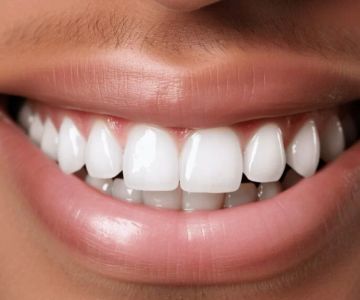What is Oral Hygiene?
Oral hygiene refers to the set of practices aimed at keeping your mouth clean and free of diseases. It involves not only daily brushing and flossing but also regular visits to the dentist for check-ups and cleanings. A proper oral hygiene routine is crucial for maintaining healthy teeth and gums.
Why is Oral Hygiene Important?
Oral hygiene is preventive care. By taking good care of your teeth and gums, you can prevent various oral health problems such as cavities, gum disease, bad breath, and other issues. Moreover, oral health is closely linked to overall body health. For instance, an infection in the mouth can spread through the bloodstream and cause other health concerns like heart disease and stroke. Maintaining good oral hygiene is an integral part of ensuring long-term overall well-being.
Conditions Linked to Oral Health
Research indicates that gingivitis and periodontitis can contribute to several health conditions, including cardiovascular disease, stroke, endocarditis, pneumonia, and pregnancy complications. Conversely, certain health conditions like diabetes, osteoporosis, HIV/AIDS, and Alzheimer's disease can have a negative impact on your teeth and gums.
Signs of Poor Oral Hygiene
Several warning signs may indicate oral health problems. Common signs of poor oral hygiene include bleeding gums, tooth decay, chronic bad breath, loose teeth, gum recession, mouth sores that don't heal, toothache, swelling of the jaw, and gingivostomatitis.
Improving Oral Hygiene
To enhance your oral hygiene, use fluoride toothpaste and a soft-bristled toothbrush. When brushing, position the toothbrush at a 45-degree angle towards your gums to remove plaque and bacteria. Flossing is essential to clean the spaces between your teeth. You can also use interproximal brushes or dental picks if needed. Don't forget to brush your tongue and use antibacterial mouthwash. Regular dental visits are vital for good oral health. Avoid smoking as it is a major cause of gum disease and oral cancer.
Oral Hygiene Products
When choosing oral hygiene products, look for the ADA Seal of Acceptance. Your dentist can provide personalized product recommendations based on your specific situation.
Risks and Benefits
Practicing good oral hygiene offers numerous benefits, such as healthier teeth and gums, a beautiful smile, fresher breath, reduced need for dental work, lower risk of various diseases, and reduced risk of oral cancer. Additionally, preventive dental care is more cost-effective in the long run.
Recovery and Outlook
The frequency of dental visits for exams and cleanings depends on your individual needs. Many people benefit from cleanings every six months, but those prone to cavities or gum disease may require more frequent appointments.
When to Call the Doctor
If it's been more than six months since your last dental cleaning or if you experience warning signs like tooth pain, bleeding gums, loose teeth, or chronic bad breath, it's time to schedule a dental consultation. Early treatment of oral health problems can boost your overall health.
In conclusion, maintaining proper oral hygiene is essential for optimal oral health. Brushing, flossing, and regular dental visits are the key to keeping your teeth and gums in top condition. By adhering to these practices, you not only enjoy a healthy smile but also reduce the risk of various health problems and save time, money, and worry in the long term. Talk to your dentist to create a personalized oral hygiene plan that suits your specific needs.


 Westgate Dental Arts
Westgate Dental Arts Coventry Family Dental
Coventry Family Dental Familia Dental
Familia Dental Dr. Daniel S. Fife, DDS
Dr. Daniel S. Fife, DDS Dentistry At Suburban Square: Michael I. Wollock, DMD
Dentistry At Suburban Square: Michael I. Wollock, DMD Comfort Care Dental
Comfort Care Dental The Importance of Oral Health Education During Pregnancy for a Healthy Pregnancy
The Importance of Oral Health Education During Pregnancy for a Healthy Pregnancy Why Skipping Dental Checkups Can Lead to Bigger Oral Health Problems
Why Skipping Dental Checkups Can Lead to Bigger Oral Health Problems Advantages of Porcelain Dental Restorations
Advantages of Porcelain Dental Restorations Best Tips for Brushing Your Teeth Properly for Healthy Gums: Essential Techniques for Oral Health
Best Tips for Brushing Your Teeth Properly for Healthy Gums: Essential Techniques for Oral Health How Can Diabetes Cause Tooth and Gum Problems? Preventing and Managing Oral Health Issues
How Can Diabetes Cause Tooth and Gum Problems? Preventing and Managing Oral Health Issues Healthy Habits for Promoting Good Oral Health and Hygiene: Tips for a Healthy Smile
Healthy Habits for Promoting Good Oral Health and Hygiene: Tips for a Healthy Smile